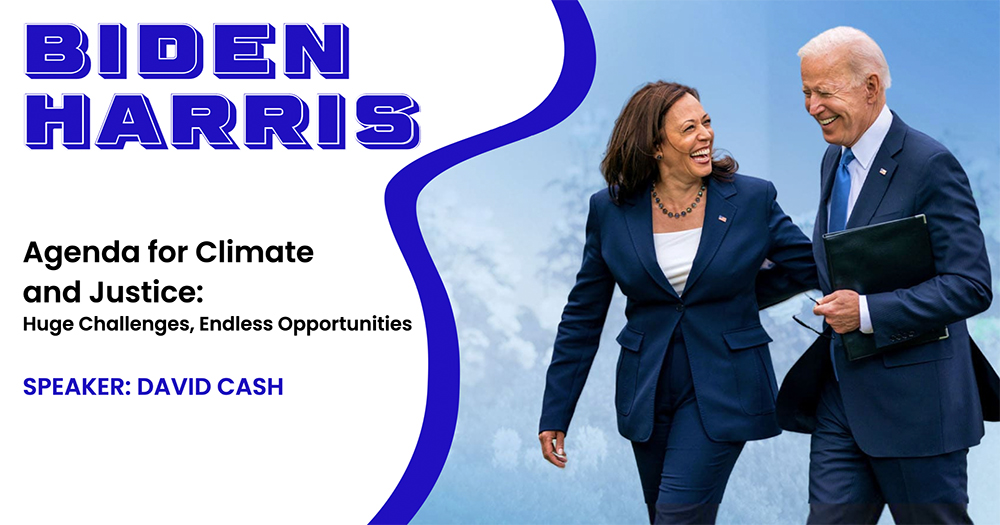On Monday, Oct. 17, the Senator George J. Mitchell Center hosted a talk on the Biden administration’s agenda regarding climate change and justice as part of its ongoing Sustainability Talks series.
The center, located in Norman Smith Hall on the University of Maine campus, welcomed honorary guest speaker David Cash, who serves as the current regional administrator for Environmental Protection Agency (EPA) New England. Cash has devoted his career to working with state governments, communities and the private sector to create policies around the U.S.His work aims to combat climate change, achieve environmental justice and other related areas that pose some of the most significant issues in today’s society.
In his highly informative discussion, Cash explored how the current presidential administration is approaching the looming threat of climate change through recent legislation.
“The EPA is a steward of about $100 billion dollars that’s going to go to states, tribes, communities and the private sector to get to the greenhouse gas neutral place that we need to be,” Cash said. “It will grow the clean energy economy that will provide leading jobs, and it will do it in a way where we center justice.”
When analyzing who to disburse funds to, it’s important to remember who we need to protect the most. There are many underserved, diverse communities around the U.S. that have been historically overlooked and left to struggle in times of need. Climate change affects everyone, and it is the goal of the administration to prioritize low-income, diverse communities that often benefit from intervention the most, yet their needs are disproportionately satisfied.
In November 2021, President Biden signed an infrastructure bill that would bring $40 million this year to the state of Maine alone. Cash noted that these funds are to replace lead pipes and build drinking and wastewater systems that will be resilient to climate change.
An additional $20 million in funds has been granted to the state through the EPA to be used to clean up old industrial sites in many southern Maine communities to make way for economic development on these lands. The selected sites will be redeveloped as commercial and residential spaces.
“Maine has done a really good job of converting these horrible risks to communities into assets,” Cash said.
Federal funding through the Inflation Reduction Act is also crucial as the United States moves toward a more aggressive approach to combating climate change. New investments will promote offshore wind, electric vehicles, heat pumps in homes and more. Cash reiterated a key goal of this act, which is to focus on environmental climate justice that will especially benefit the nation’s diverse, underserved communities. For example, a five-year program has been implemented to convert old school buses to electric buses so that children can ride to school without diesel emissions.
Other focuses on renewable energy, especially offshore wind, are expected to greatly benefit the northeast by creating a need for manufacturing and job growth. Cash demonstrated that Maine has a lot to look forward to in the near future as it receives increased support from the federal government to do its part in combating climate change while also reaping the economic benefits that can arise from long-term investments.
To view a recording of Dr. Cash’s talk or to receive more information about this fall’s upcoming Sustainability Talks, visit https://umaine.edu/mitchellcenter/.













